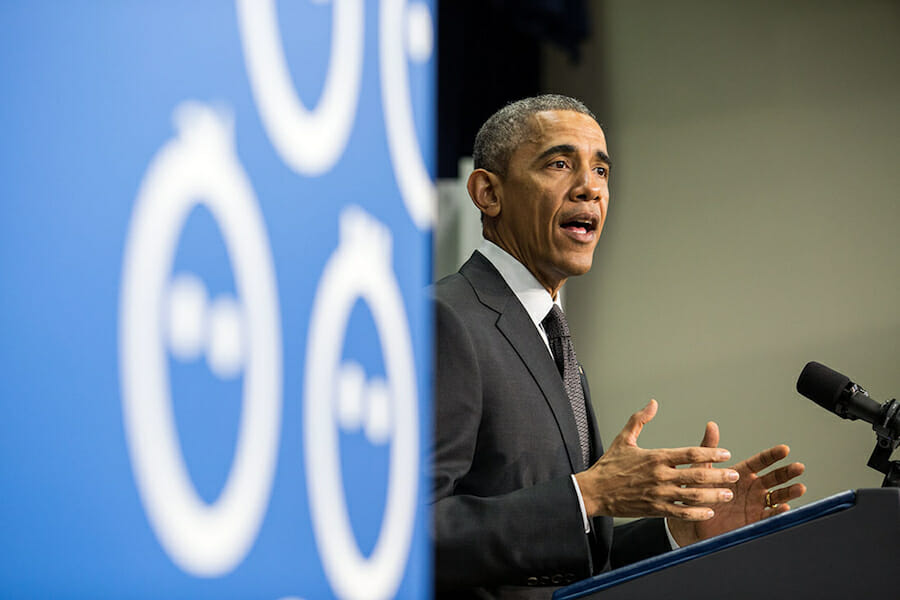
Politics
Obama Overhauls Immigration Reform
The past few months have seen great upheavals in the Obama administration, especially regarding the changes to immigration reform. President Obama’s refusal to take executive action on the reform before the mid-term elections had led many young and Hispanic voters to question his abilities and his position, while Republicans in Congress strongly warned the president that any executive action he presumably would take regarding immigration would be unlawful and “poison the well” on Capitol Hill.
Congress is split about immigration reform
As one of the most highly debated issues prior to and during the 2014 Congressional midterm elections, immigration laws in this country remain unclear. The government has been in a deadlock in regards to immigration reform since then, with President Obama claiming that he is “fighting for [immigration reform] in the White House but what we do not have right now is a Congress that can function,” while House Speaker John Boehner (R-Ohio) claims that “the President has responsibility here as well.”
In an appearance on CBS’ “Face the Nation” post-election, President Obama once again affirmed that he won’t wait for Congress to make any changes on immigration but rather will use executive action to implement immigration reform before Christmas.
He claims that the U.S. neither has the capacity to deport 11 million undocumented immigrants nor should all be deported, particularly if they’ve been in America for a long time and have strong familial ties here.
In his first press conference after the Elections, Republican House Speaker John Boehner warned that the President is “inviting big trouble” if he takes any executive action on immigration without going through Congress first.
Hispanic voter sentiment has decreased
The president’s approval rating among the Hispanic community has dropped nearly 20 percent since 2012, and many believe that this resulted in the low turnout rate of Hispanic voters during the Congressional elections. Compared to the 10 percent of Hispanic voters in the 2012 elections, only 8 percent appeared to vote this year.
Many Latino activists are protesting against any delay to legislation, lobbying for a significant change to immigration reform – and fast. Pro-immigration reform groups, both non-partisan and Democratic, realize that in order to pursue immigration reform and ensure its enactment into law, there needs to be an increase in young and minority voter registration.
For immigration reform to pass through Congress, those most affected by it need to turn out and vote, especially as over 28 million Latinos will be eligible to vote by the next presidential election. Many non-partisan political groups have changed focus and started stressing the importance of voter registration.
Obama finally acts on immigration
After battling negative opinions and a drop in the polls, President Obama addressed Congress and the American people Thursday night, defending his decisions regarding immigration reform. The president hopes to expand the Deferred Action for Childhood Arrivals program as well as give legal residency to professionals working in high-tech fields. As he announced, Obama’s restructured plan will allow nearly 5 million immigrants working and living in the United States to come out of the shadows and for now not fear deportation. Although many networks refused to give up their top-grossing airtime for his speech Thursday night, the president’s overhaul on immigration reform aired on major Latin and American news channels and inspired heated debate among Republicans.
While Obama’s new reforms no longer propose a path to citizenship, immigrants are still eligible for work visas and deferral programs that will allow them to work in the United States for up to three years. Some Republicans are reacting negatively to these changes, regarding the president’s deferral as ‘executive amnesty’ and threatening changes and repercussions once the new representatives take the floor.
However, not everyone is rejecting the new plan. Democrats in the Senate are very supportive, and many House Republicans appreciate the proposal’s call for strengthened borders. Under his updated executive orders, the president still supports deportation in regards to criminals and those immigrants who threaten national security. Obama’s new immigration plan will continue to politically and fiscally support border patrol agents and the judicial system as they work to screen and take to trial those who have crossed into the United States illegally.
During his speech, he made it perfectly clear that those who choose to enter the country illegally will now have an increased chance of being caught and sent back, especially if they threaten national security. However, while deportation is an option, the Obama administration realizes that deporting everyone is not the answer. The president wants to focus on the U.S.-Mexico border on holding gang members and drug traffickers accountable for their actions while offering minors and employable residents an opportunity to live and work. These changes are in an attempt to take a middle-ground approach toward Congress’ gridlock on the issue.
President Obama reassured Congress that this middle-ground order is flexible, as long as Congress proposes a comprehensive bill that he can sign within the next month. Immigration reform is necessary, but he stressed the limitations of his executive powers early in his speech. In order for immigration reform to be successful, all parties of Congress must come to a point they can agree on. Otherwise, the president’s executive actions will come into law before the end of his term.
This may alienate members of both the Republican and Democratic parties, making it difficult for Obama to influence the candidacy for the upcoming presidential election, so the president must tread lightly. Therefore, though Thursday’s speech was a large leap forward for the Latin community and the country’s approach to its border control, there is still a ways to go when it comes to overhauling the United States’ immigration laws.

